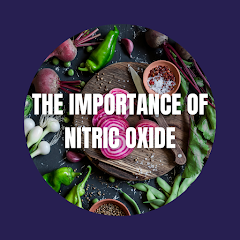Nitric oxide (NO), a crucial molecule in the human body, operates as a vasodilator without delving into intricate technicalities. Its primary function lies in expanding blood vessels and capillaries, facilitating the efficient transport of nutrients to connective tissues and muscles. Although naturally occurring in red meat and specific fruits like watermelon (especially its rinds) and pomegranates, the concentrations are typically low, prompting athletes, both male and female, to turn to supplements.
These supplements, often a blend of various ingredients, including amino acids like arginine and lysine, aim to stimulate the body's natural production of NO. The fundamental purpose of any nitric oxide supplement is not to provide the compound itself but to engineer a process within the body for the creation and metabolism of nitric oxide. This nuanced approach is essential, as direct supplementation with nitric oxide is not practical or effective.
In the realm of athletic performance, the benefits of nitric oxide supplementation become apparent. By enhancing blood flow, these supplements contribute to improved oxygen delivery to muscles, aiding in endurance and overall performance. This expanded vascular activity is also believed to play a role in reducing fatigue and supporting quicker recovery post-exercise.
Moreover, the influence of nitric oxide extends beyond the realm of athletics. It is recognized for its pivotal role in cardiovascular health. By promoting vasodilation, NO helps regulate blood pressure, prevent the formation of blood clots, and support overall cardiovascular function. This dual role of nitric oxide – both in athletic performance and cardiovascular health – underscores its significance in maintaining overall well-being.
While some individuals may obtain sufficient nitric oxide from their diet, others, especially those engaged in rigorous physical activities, may benefit from supplementation. The blend of ingredients in these supplements often includes precursors that assist the body in synthesizing nitric oxide. Amino acids, such as arginine and lysine, are noteworthy contributors to this process.
It is worth noting that the effectiveness of nitric oxide supplements may vary among individuals, and factors such as diet, lifestyle, and overall health play a role in their impact. As with any supplement regimen, consultation with healthcare professionals is recommended to ensure appropriateness and safety.
In recent years, research on nitric oxide has expanded, shedding light on its potential implications in areas beyond cardiovascular and athletic realms. Its role in immune function, neurotransmission, and inflammation modulation is actively under investigation, hinting at a broader spectrum of applications.
Despite its multifaceted benefits, it is essential to approach nitric oxide supplementation with a nuanced perspective. While it can be a valuable tool for certain individuals, it is not a one-size-fits-all solution. Balancing dietary intake, lifestyle choices, and supplementation, when necessary, forms a comprehensive approach to harnessing the benefits of nitric oxide for enhanced well-being and performance.


No comments:
Post a Comment